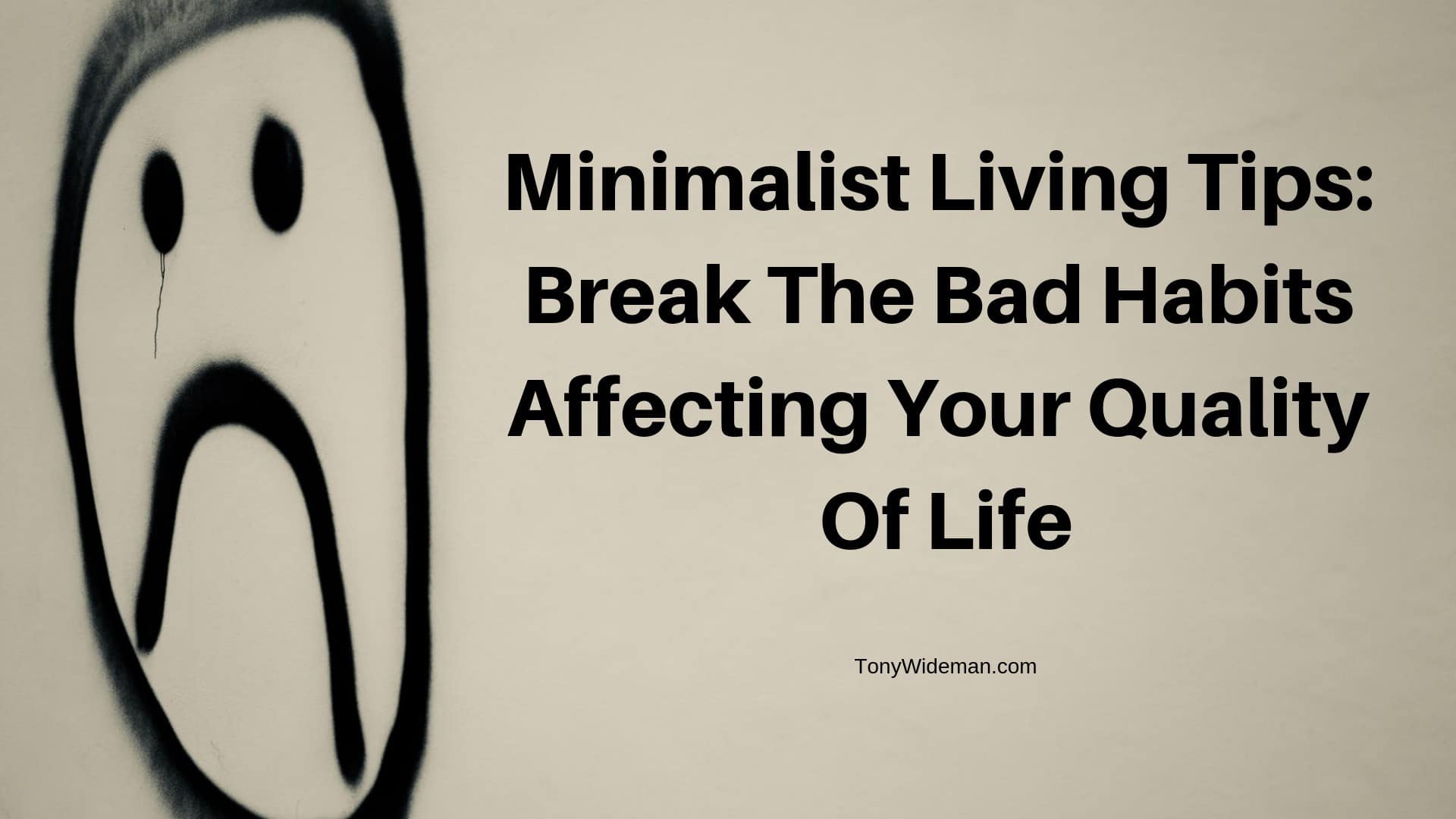Minimalist Guide: Everything You Should Know About Intermittent Fasting
In my quest to simplify my life, I took a look at Intermittent Fasting. Would you benefit from a fast simple way to get the nutrition you need without having to think about it and plan much?
I am a bit of a foodie and I daydream about planning my meals during the day. I believe that Intermittent Fasting would fill this need and eliminate some time wasted.
Eating healthy is simple, but it can be incredibly difficult to maintain a simple healthy diet and the work required to plan and cook healthy meals.
Intermittent fasting is one of the many tools and lifestyle strategies that I choose to improve my health and help add simplicity to my life.
I found intermittent fasting has even greater health benefits than I suspected. This is my Minimalist Guide to everything you should know about intermittent fasting.
I found intermittent fasting has powerful health benefits. This is my Minimalist Guide to everything you should know about intermittent fasting.
Let’s not forget fasting in general, is often practiced for religious and spiritual reasons in religions such as Christianity, Islam, Judaism, Buddhism, and many others.
Now, are you finally with me? LOL.
What is intermittent fasting?
Intermittent fasting is not a diet as much as it is an eating pattern. You can incorporate intermittent fasting into almost any diet plan.
There are no specialized foods required like many eating plans but more cycles between fasting and eating. Your food of choice is your own to make. People are also known for using intermittent fasting to manage weight and for better health.
Many studies have shown practicing fasting can have positive effects on your body, and brain functions, and extend a person’s life.
Wow! Are you in yet?
Benefits Of Intermittent Fasting
For me, intermittent fasting is a way to help simplify my life, simply provide the nutrition I need, improve my health, and combat decision fatigue.
Eating three meals at a set period of time each day has been the norm for a short time in human history. For most of human history, people were hunter-gathers eating food when they could and supplemented by snaking all during the day.
Humans at that time evolved to thrive while involuntary fasting in situations when food was scarce. When you know what you will be eating or better yet not eating it can make life more simple. According to many studies, this life-changing practice can yield the many health benefits below:
-
Promotes Blood Sugar Control by Reducing Insulin Resistance: Several studies have found that fasting may improve blood sugar control, which could be especially useful for those at risk of diabetes.
-
Promotes Better Health by Fighting Inflammation: Some studies have found that fasting can help decrease levels of inflammation and help promote better health.
-
May Enhance Heart Health by Improving Blood Pressure, Triglycerides, and Cholesterol Levels: Some research has found that incorporating fasting into your routine may be especially beneficial when it comes to heart health.
-
May Boost Brain Function and Prevent Neurodegenerative Disorders: Though research is mostly limited to animal research, several studies have found that fasting could have a powerful effect on brain health.
-
Aids Weight Loss by Limiting Calorie Intake and Boosting Metabolism: Theoretically, abstaining from all or certain foods and beverages should decrease your overall calorie intake, which could lead to increased weight loss over time.
-
Increases Growth Hormone Secretion, Which Is Vital for Growth, Metabolism, Weight Loss and Muscle Strength: One study in 11 healthy adults showed that fasting for 24 hours significantly increased levels of human growth hormone (HGH)(24).
-
Could Delay Aging and Extend Longevity: Several animal studies have found promising results on the potential lifespan-extending effects of fasting.
-
May Aid in Cancer Prevention and Increase the Effectiveness of Chemotherapy: Animal and test-tube studies indicate that fasting may benefit the treatment and prevention of cancer.
Intermittent Fasting Related Safety Concerns
Hunger is the most common side effect of fasting. If you miss meals for a few days hunger should be nothing more than an annoyance during fasting.
In the beginning, you may feel weak, dizzy, or not your best as your body begins to adapt to missing meals.
If you have any chronic medical conditions, you should consult your physician before adopting an intermittent fasting regimen.
This will alleviate any health and safety concerns. Intermittent fasting is relatively safe as most people in the developed world consume too many calories during the day anyway. LOL.
Intermittent fasting may be a healthy welcomed change of pace.
How To Intermittent Fast
Alright, let’s get started. First, you need to select the type of fasting method you would like to begin. Most people have experience with intermittent fasting in one way or another.
Whether it be because of a busy schedule or limited funds, If you have gone 16 hours or more without eating you have fasted before. If this happens regularly you have experienced intermittent fasting.
There are a few popular methods to practice intermittent fasting and they all consist of splitting time between eating and fasting regularly during the day or week. During those periods you either eat and drink, refrain from eating and drinking, or eat and drink very little.
Let’s explore some of the more popular methods of intermittent fasting:
Alternate-Day Fasting:
This means fasting every other day. Some versions of this method have calorie requirements or restrictions. Every other day you will go to bed hungry and that is one of the reasons I do recommend this method to beginners.
The Circadian Rhythm diet:
Is a form of intermittent fasting. The difference is intermittent fasting allows you to set your own feeding schedule circadian rhythm fasting requires you to stop eating by 7 pm.
16/8 Method:
This method involves fasting two-thirds of the day (14-16 hours). Some people skip breakfast and eat a few meals for one-third of the day (8 hours). Others choose to not eat anything after dinner, sleep, and be free to eat again around noon the next day. You can create your own version of this method if you choose.
The Warrior Diet:
Fast during the day and feast at night within the 4-hour eating window. With this method sometimes small amounts of fruits and raw vegetables are allowed during the day. This diet sometimes emphasizes food choices similar to the paleo diet. Natural unprocessed foods are similar to how ancient warriors or hunter-gathers would eat.
Eat-Stop-Eat:
This intermittent fasting method requires you to fast for 24 hours a few times a week. It is equivalent to eating one meal a day when fasting. You can choose to eat lunch today and fast until lunch the next day. You can also choose breakfast or dinner to be your trigger. Oh yeah, Water, coffee, and non-caloric beverages are allowed during this fast, but no solid food.
5:2 Method:
With this procedure, you get to eat normally for five days while for two nonconsecutive days, you only consume 500-600 calories.
Spontaneous Meal Skipping:
Skip meals when convenient.
Dry Fasting:
The dry fast is a true fast. No food. No water. Period! A soft dry fast includes showering and brushing teeth while an absolute dry fast (or black fast) is done without contact with any water.
Some people instinctively practice some of these fasting methods. If you find some of the basic methods easy to practice and feel good during the fast it may be time to move on to more advanced methods.
I personally believe simply intermittent fasting whenever it’s convenient by skipping meals from time to time is the most common method of intermittent fasting. I also believe Dry Fasting is the most advanced method of fasting and yields the greatest health benefits to a healthy person.
Intermittent fasting is a personal choice and there is no need to follow any structured intermittent fasting method to derive any benefit from practicing intermittent fasting.
I suggest experimenting with many methods of intermittent fasting and deciding the intermittent fasting method that serves you the best.
Conclusion.
We all know fasting is not a new concept. For many centuries people have intermittently restricted their food intake for religious reasons.
There are many obvious benefits, many assumed benefits, and many scientifically proven benefits. There are many methods that can be used in practicing fasting.
All of those methods have specific pros and cons associated with them. We all know what and how much food and drink a person consumes has the most powerful effect on health and well-being.
Who knew when and what intervals that consumption mattered almost just as much?
There is something for people losing their appetite when ill. There is even more to animals going off hiding somewhere when wounded or ill.
Both are forms of fasting that may seem counterproductive to promoting health and well being but the opposite is true. I am fascinated with Dry Fasting for those reasons.
Can you benefit from fasting? Have you tried fasting? What are your experiences with intermittent fasting?







Thanks for your comment Stella. I agree with your take on Intermittent Fasting. Some people Fast everyday by only eating dinner.
I like to fast 24 hours for one day a week. I also experiment with Dry Fasting up to 3 days at a time. I would like to be able to Dry Fast up to 5 days but I am not there yet.